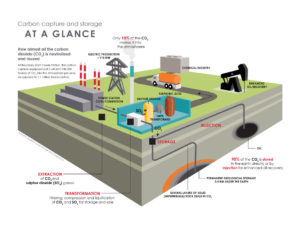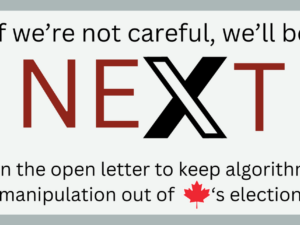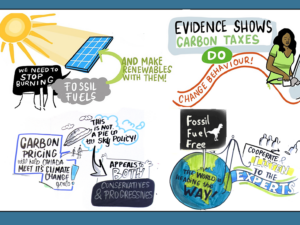King Tide Flooding in Vancouver on November 2018. Photo Credit: KevinCGriffin / Twitter SUDBURY, ON: A UN Report released yesterday warns oceans are set to unleash misery on a global scale if carbon pollution is not brought to heel. The latest report, prepared by over 100 scientists of the Intergovernmental Panel on Climate Change (IPCC), reviews the latest scientific knowledge on the global climate emergency in relation to oceans and frozen zones. It completes a quartet of UN reports released in the past twelve months highlighting the consequences of exceeding 1.5 degrees Celsius of global heating, which is all but locked in. “This latest IPCC report reminds us that the consequences of our climate emergency are exponentially more severe if we as a collective do not change our priorities now,” says Cathy Orlando, National Director of Citizens’ Climate Lobby Canada. “The good news is we can change the way we engage with our democracy now for an exponentially more liveable world.” The report warns of climate impacts that have accelerated and will continue to accelerate in the absence of additional policies to combat climate change, including sea level rise, decline in fish and shellfish stocks, increasing superstorm intensity, increasing ocean acidification and warming, and melting permafrost, which will unleash even more greenhouse gases to accelerate global heating even further. The report also highlights that these effects disproportionately affect the well-being and culture of Indigenous Peoples while efforts to adapt to the climate crisis have benefited from the inclusion of Indigenous and local knowledge Earth has already experienced a 1-degree Celsius average increase in global heating since pre-industrial times. It was estimated in the IPCC Special Report on 1.5 Degrees Global Warming that by 2030, global greenhouse gas pollution emitted needs to reduce by about half in order to have a 50/50 chance of meeting the Paris Agreement goals, which are to keep global heating well below 2 degrees Celsius and to “pursue efforts” to limit global heating to 1.5 degrees Celsius. Climate Action Tracker (CAT) is an independent scientific analysis that tracks and categorizes countries based on their progress towards the Paris Agreement goals. From 2011 to 2016, Canada was in the “highly insufficient” CAT category. In 2017, Canada moved into the “insufficient” category. According to CAT, Canada’s current Paris Agreement pledge of reducing greenhouse gas emissions by 27% by 2030 is consistent with a path to 2 to 3-degree Celsius global heating. This scenario would be catastrophic for humans and millions of other species. Climate change is poised to be a top election issue this October. An August 2019 online survey from the Angus Reid Institute estimates that seven-in-ten Canadians say climate change should be a top priority for whichever party forms government after the October federal election. In August 2018, Greta Thunberg, a 16-year old from Sweden, also sparked a global climate movement of youth striking from school called Fridays For Future. Fridays For Future strikes have been registered in 213 Canadian cities for the week of September 20 to 27, culminating in a general strike on September 27 which Thunberg has invited everyone to join. Economists widely agree that the most effective single policy tool for reducing greenhouse gas pollution is a gradually increasing price on carbon-based fossil fuels such as oil and gas. More than 3500 economists have signed an open letter endorsing pricing carbon coupled with rebates to households to protect families from increased energy costs. The provincial governments of Ontario, New Brunswick, Manitoba, and Saskatchewan opted against pricing carbon so the federal government applied a backstop carbon price coupled with 90% of the revenues returned as household rebates, making at least eight in ten households better off. However, the federal government has only committed to gradually increasing carbon pricing to $50 per tonne of carbon emissions until 2022. The government’s own study shows current policies will only get Canada halfway to its Canada’s Paris Agreement greenhouse gas reduction pledge, rated as insufficient by CAT. “In spite of the warnings, I am grateful for our democracy,” says Orlando. “When we engage in our democracy through voting and sustained collective action, we make acting credibly on climate a winner in politics. Part of a credible and cost-effective climate plan is to make science-based emissions targets the law of the land and increasing carbon pricing past 2022,” says Orlando. “When it comes to cultivating a liveable Earth, Greta Thunberg said it so clearly and eloquently: unite behind the science.” ########MEDIA RELEASE: UN Scientists Warn Major Water Changes
FOR IMMEDIATE MEDIA RELEASE September 26, 2019
Media Contact: Cathy Orlando, cathy@citizensclimatelobby.org , 705-929-4043
MEDIA RELEASE: UN Scientists Warn Major Water Changes
Home » CCL Canada News » MEDIA RELEASE: UN Scientists Warn Major Water Changes












